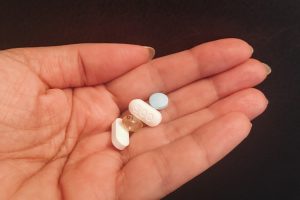Urinary tract infections account for nearly 25% of reported illnesses in women. And while they are familiar and easy to treat with medication, the symptoms associated with this type of infection can be pretty uncomfortable for some people. You may have also heard people recommending urination after sexual activity to prevent contracting a UTI from a partner. The good news is there is some merit to that argument. This article explores questions about people with urinary tract infection urinating after sexual intercourse and how it benefits them.
As with any medical information, you must speak to your healthcare expert immediately if you are experiencing pain or discomfort.
Can Urination Prevent UTI After Sex?
In short, the answer is yes.
The urinary tract is more prone to infection if not ‘cleaned’ post-sexual intercourse or other sexual activity. Some benefits are inherent for an individual with urinary tract infection urinating after sexual intercourse. And the best way to clean or flush out a urinary tract is through frequent urination.
The adage about “staying hydrated” is good for our overall energy and health and the primary means to prevent UTI infections or bladder infections from occurring.
Related: What Happens if a UTI Is Not Treated?
How to avoid UTI after sex
An obvious solution to the problem of developing recurring UTIs after sex is to not be sexually active with a partner who has one. Technically, developing a UTI after having sex with someone with a UTI is not guaranteed. Still, it is likely – especially for women.
The same can be said about sharing sexual devices or toys. Cleaned and personal devices are unlikely to lead to a UTI, but sharing them with a partner who has an infection increases that possibility exponentially.
How to prevent UTI after sex
To lower the risk factors associated with and the probability of bacteria entering your urethra after having sexual intercourse, it is a great practice to flush it out via urination. After intercourse or masturbation, you are likely to lower the risk of infection symptoms from taking hold simply by visiting the bathroom and doing a number one.
It is a great habit to incorporate if you are sexually active or masturbating, even with a clean, personal sexual device. Therefore, devices and other sex toys inserted into the vagina or anus or come into contact with bodily fluids should be cleaned after each use.
Ideally, the quicker you use the bathroom to urinate after having been sexually active, the more likely you will be from a UTI from taking hold. Many healthcare providers suggest that going within 15 – 30 minutes post-sexual activity is best.
Recent medical research has determined that women with recurrent urinary tract infections urinating after sexual intercourse with a device enjoy far better chances of preventing UTIs. This is because holding your urine in for too long after sex is a common cause of recurrent UTIs.
How long does it take to contract a UTI after sex?
In most people’s cases, a UTI will develop within a few days. This is because the bacteria must build up and then irritate the urethra and surrounding area. If a person is sexually active or having regular sexual intercourse, not only will it be difficult to avoid UTIs due to constant reinfection, but it may also be challenging to determine the source of the initial infection.
Other Ways to Avoid UTIs
One of the best ways to avoid UTIs has little to do with your doctor or medications. Instead, personal hygiene is critical in prevention.
Your healthcare provider will likely tell you that good hygiene standards are the best way of avoiding visiting them with annoying UTI symptoms.
Drinking plenty of fluids (that’s water) before and after being sexually active is the perfect way to ensure urination, which will ‘flush’ the urethra.
Many folks will say that drinking cranberry juice can speed up recovery. While medical studies have not proven this to be an effective remedy, the success of this drink may primarily come down to increased body fluids and urination.
Water, however, is a far better option here, as cranberry juices can be quite sugary. Plus, water is free and has zero calories! Drink plenty water.
What does urinating after sex prevent?
The germs that cause UTIs are E. coli bacteria. By urinating after sexual intercourse, the body can flush out these harmful bacteria from the urinary system or at least flush most of the bacteria out so that the infection cannot take hold.
While urinating after sexual intercourse by both men and women goes a long way to preventing UTIs, it’s not a complete solution. However, using protection is a far more reliable method of preventing UTI and STD transferal between people.
People with urinary tract infection urinating after sexual intercourse will not prevent the transferal of STDs either.
Read Also: How to Get Rid of a UTI in 24 Hours
Frequently Asked Questions (FAQs)
Unfortunately, women are more likely to contract a UTI than men. The reason for this is typically down to anatomical differences.
The female body’s urethra and urinary tract are very close to the vagina, whereas men’s are not. As the vagina is the site of sexual activity in women, an infection can spread much more quickly. This is why urination after sexual intercourse is strongly recommended as a method to prevent UTIs from occurring. Women should also be aware of how urinary tract infections may affect their birth control. In some cases, UTIs have changed the effectiveness of birth control.
Frequent urination can be one of the common symptoms of UTIs, but not necessarily confirmation of one. A healthcare provider can accurately diagnose a tract infection via a urine sample.
Other common UTI symptoms include:
- Pain or burning during urination,
- Blood in the urine,
- ‘Cloudy’ urine,
- Feeling a constant need to urinate, even after just having done so,
- Aches, discomfort, or cramps in the lower abdomen.
Sometimes more severe symptoms may occur, including:
- A high fever or chills,
- A backache, especially in the lower back and,
- Nausea and vomiting.
If these severe or more common symptoms occur, visiting a healthcare provider for UTI treatment as soon as possible is crucial.
While less common in men than in women, men can quite easily contract UTIs from women.
The male genital anatomy differs from women’s and is much more advantageous to not getting a UTI.
Anal sex without protection can make contracting a UTI relatively easy, though.
As with women, certain genetic features and immune response complications can make some men more susceptible to contracting a UTI from a female partner.
Good hygiene practices and using protection during sexual intercourse will likely prevent any UTIs from taking hold.
The short answer to this question is no. However, urinating will likely remove much of the bacteria in the urinary tract area, drastically reducing the chances of contracting a UTI.
So, ensure you drink water before sexual activity and especially after sexual intercourse.
In general, a healthcare provider will know the difference between a sexually transmitted disease, an infection and a UTI. An STD can be more serious than a UTI and take longer to cure in the body too.
Common STDs like chlamydia and gonorrhea present very similar symptoms to a UTI; hence they are often confused. However, STDs often have ‘outer’ signs that a UTI will not.
So, while both a UTI and an STD like chlamydia may have a burning sensation during urination, a UTI doesn’t have rashes and sores on the skin like an STD would.
A UTI may sometimes be uncomfortable but is considered relatively mild in the medical community. If left untreated, however, the infection may spread and cause other complications. For example, the kidneys are particularly vulnerable if a UTI is left untreated.
Many healthcare providers recommend that women urinate shortly after sexual activity to rid the urinary system of any lingering, harmful bacteria that may have entered the urethra. The body’s urine is free of bacteria.
While urination won’t eradicate any present bacteria, it will flush most out and wash the urinary system. Post urination, women should wipe their genital area, front to back, to remove any remaining bacteria from the surface.
Unfortunately, women are more susceptible to UTIs than men. According to The American Urological Association, it is estimated that 20 – 40% of women who contract UTIs will also contract another similar infection like a yeast infection. Furthermore, 25 – 50% of those infected women will then contract at least one more again!
The reasons for this are, unfortunately, down to biology. Women’s urethras are positioned close to their genitals and anus. This means that during sexual intercourse, it’s more likely that UTI bacteria can take hold.
There are, of course, certain genetic factors that can influence women’s bodies. An individual’s immune response will also determine their susceptibility to chronic UTIs. Lesions from bladder stones and bladder diseases can also impact a person’s susceptibility to UTIs.
There’s no one cause for why women may need to urinate after sexual intercourse, but staying hydrated before sexual activity is good for overall health and hygiene.
It may be argued that a bladder with liquid that is moved around in the natural motions of sexual intercourse could make someone feel an urgency to go. Still, there’s no medical reason for feeling the need to go.
It is said, though, that because a woman’s urethra is located next to the vagina, it is under pressure more during sexual activity, making women feel the need to urinate afterward.
In addition, pressure on the urethra and the bladder can make someone feel the urge to go to the bathroom.
It is important not to ‘self-diagnose’ when it comes to UTIs and STDs. A healthcare provider is the most trusted source of information and medical advice.
Should you experience any symptoms mentioned in this article and are concerned about having a UTI or an STD, it is essential to visit them as they can conduct the tests from a urine sample and prescribe any necessary medications you may need.





